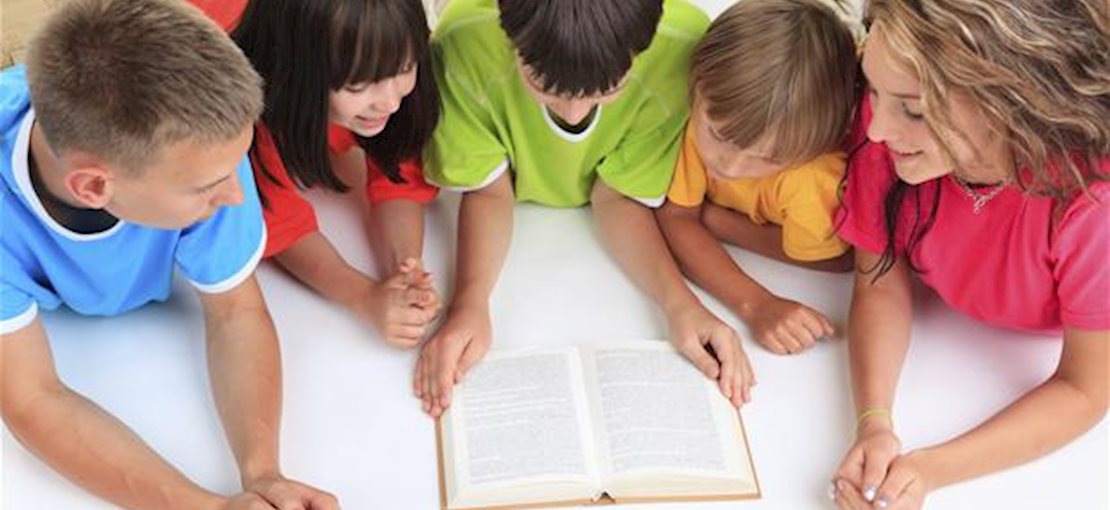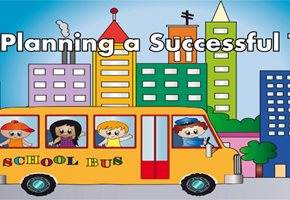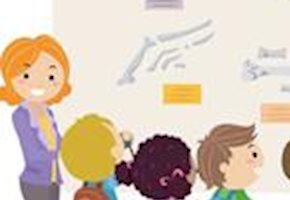All successful field trips are planned months, even a year, in advance, are each detail is checked and doubled checked. So we’ve made it easy for you. Here’s a checklist from start to finish to help keep you organized!
Fundraising:
| Who |
|
| Chairperson: |
|
| Committee: |
|
| |
|
| What |
|
| Type of Event/Fundraiser: |
|
| |
|
| Where |
|
| Location: |
|
| |
|
| When |
|
| Date: |
|
| |
|
| Why |
|
| We are raising money for: |
|
| |
|
| How Much |
|
| Will Cost? |
|
| Budget: |
|
Field Trip Planning:

Pre Trip:
√ Select an Off-Site Destination or an in school assembly
√ Get administrative approval for trip
√ Once the trip is approved, organize bus (if needed)
√ Contact the educational coordinator of the program to arrange date, time and visit schedule and material
√ If possible, visit the site to familiarize yourself with the site
√ Present students with a lesson plan that introduce the site and material to be studied or reinforced during the visit
- For younger children – show pictures of the site AND practice proper field trip behavior
- For elementary aged children – in addition to presenting an overview of the trip, have them make connections and predictions about the visit
- For tweens and teens – incorporate a fun exercise: learning about physics - talk about roller coasters; statistics - discuss baseball
√ Send home permission slips including:
- Date and location of field trip and transportation arrangements
- Educational purpose of field trip
- Provision for special needs students
- Cost
- Clothing for the trip
- Lunch arrangements
- Money needed
- Trip schedule
- Whether a child will need prescribed medication administered
- Parent signature
Day of Tip
√Split class into smaller groups
√Place a class list and student emergency forms in a folder
√Secure a cell phone if possible
√Take along an emergency kit
√Take inventory of food, specific equipment, and other supplies pertinent to the particular field trip
Post Trip
√Share observations and reactions to field trip
√Create a classroom bulletin board displaying materials developed or collected while on the field trip
√Develop a classroom museum that replicates and extends displays students observed on the field trip
√Have the class compose and send thank-you letters to the field trip site host, chaperones, school administrators and other persons that supported the field trip
√Create a short news report about what happened on the field trip. Publicize the trip via an article in your local newspaper, school bulletin board, trip presentation for parent’s night, or class web page
√Teachers should fill out field trip evaluation form
√What was of unique educational value inthis field trip?
√Did the students meet the objectives/expectations?
√Was there adequate time?
√Was there adequate staff and adultsupervision?
√What might be done differently to make this an even better experience in the future?
√What special points should be emphasizednext time?
√What special problems should be addressedin the future?
√What would improve a visit to this site in the future?
By: Jenny Tananbaum







Add A Comment
Thank you for your comment.
Sorry! There was a problem with your comment submission. Please try again.
Comment
Allowed HTML: <b>, <i>, <u>, <a>
Comments
Thank you for your comment.
Sorry! There was a problem with your comment submission. Please try again.
Thank you for your comment.
Sorry! There was a problem with your comment submission. Please try again.